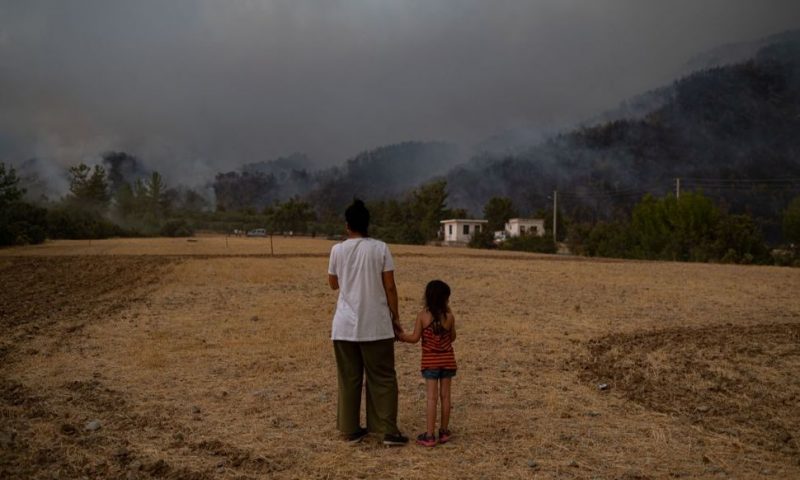The scale of recent changes to the planet’s climate is ‘unprecedented over many centuries to many thousands of years,’ the report found.
Many changes to the earth’s climate are “irreversible” due to past and future greenhouse gas emissions, according to a ground-breaking report from the United Nations released Monday that paints a rather bleak future for the planet.
The report from the U.N.’s Intergovernmental Panel on Climate Change found that it is “unequivocal that human influence has warmed the atmosphere, ocean and land.” There is no quick fix: The global surface temperature will continue to rise until at least the middle of the 21st century “under all emissions scenarios considered,” according to the report, and increases of 1.5 and 2 degrees Celcius will be exceeded this century unless there are “deep reductions” in greenhouse gas emissions in the coming decades.
“The alarm bells are deafening, and the evidence is irrefutable,” U.N. Secretary-General António Guterres said in a statement, where he also described the report as a “code red for humanity.”
The real-time impacts of climate change are already at the forefront, with dangerous heat waves and an active wildfires season in the Western U.S., as well as officials predicting yet another busy hurricane season. As such, the U.N. report notes that “human-induced climate change is already affecting many weather and climate extremes in every region across the globe.”
The effects have been building over many years. The panel found that “each of the last four decades has been successively warmer than any decade that preceded it since 1850.” The authors assigned varying ranges of likelihood that human influence impacted different types of climate changes and warming, such as global precipitation, surface temperature and the global retreat of glaciers. For example, they say it is “extremely likely” that humans are the main driver of the warming of global upper ocean temperatures.
Experts say the implications of the report should be a call to arms.
“It paints a picture of the reality of the climate crisis, one with more intense and frequent extreme weather events that cause devastating losses in communities and ecosystems around the world,” Marcene Mitchell, the World Wildlife Fund’s senior vice president for climate change, said in a statement. “Some of the threats of climate change are here to stay, but the report clearly states we shouldn’t throw in the towel.”
The authors note in the report that it is possible to slow global warming for future generations, but it will require, for instance, reaching at least net-zero carbon dioxide emissions and “strong, rapid and sustained” reductions in methane emissions. Rebecca Shaw, the chief scientist at the World Wildlife Fund, also described the findings as a “game changer.”
“This report reflects extraordinary efforts under exceptional circumstances,” Hoesung Lee, chairman of the panel, said in a news release. “The innovations in this report, and advances in climate science that it reflects, provide an invaluable input into climate negotiations and decision-making.”

